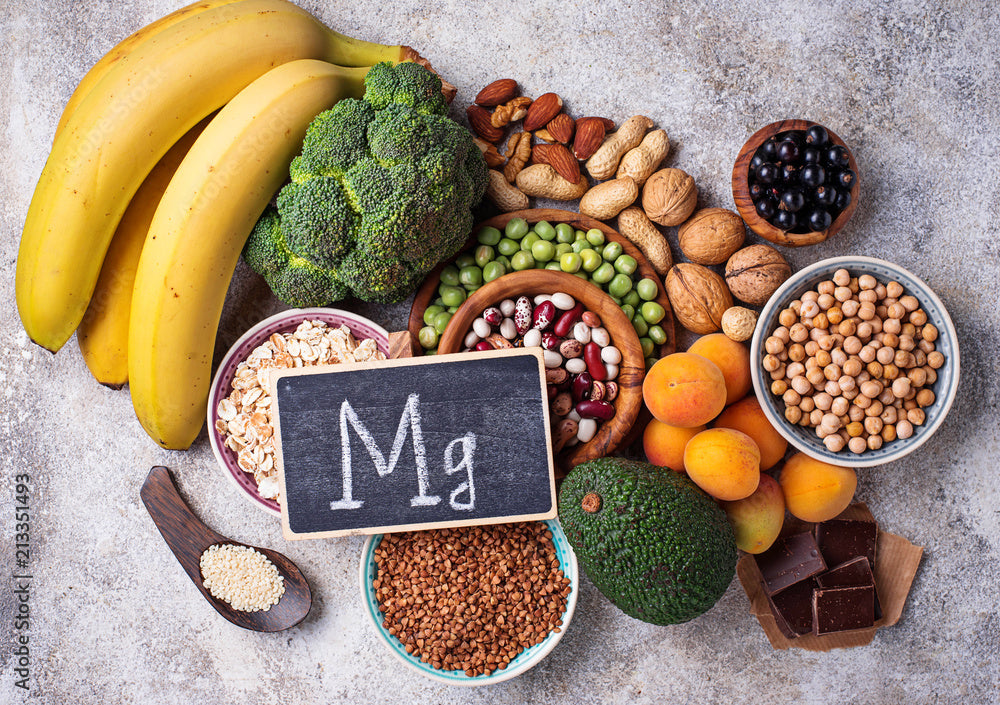Magnesium is a powerhouse mineral that plays a crucial role in over 300 enzymatic reactions in the body. From supporting muscle and nerve function to regulating blood sugar levels and blood pressure, magnesium is a key player in maintaining overall health and well-being.
Why Does Magnesium Matter?
For health-conscious individuals, magnesium is even more essential. It helps in the production of energy, supports a healthy immune system, and aids in maintaining strong bones and a healthy heart. With our fast-paced lifestyles and processed food choices, many of us may not be getting enough magnesium from our diets alone.
Organic vs. Inorganic Magnesium: What's the Difference?
Organic magnesium refers to magnesium that is bound to organic compounds, making it easier for the body to absorb and utilize. Inorganic magnesium, on the other hand, is not as easily absorbed and may cause digestive issues. Choosing organic magnesium sources can help ensure optimal absorption and effectiveness. [1]
Organic magnesium:
Magnesium-Citrate
Magnesium-Malate
Magnesium-Glycinate
Magnesium-Aspartate
Magnesium-Gluconate
Inorganic magnesium:
Magnesium-Oxide
Magnesium-Carbonat
Magnesium-Chlorid
Magnesium-Sulfat
How Much Should You Consume?
The recommended daily intake of magnesium varies depending on age, gender, and specific health conditions. However, most adults should aim for around 400 mg per day for men and 350 mg per day for women. It's always best to consult with a healthcare provider to determine the right dosage for your individual needs.
If you are deficient, obtaining magnesium from whole foods is always the best initial strategy. Magnesium is present in a variety of foods, including [2]:
Legumes: black beans, edamame
Vegetables: spinach, kale, avocado
Nuts: almonds, peanuts, cashews
Whole grains: oatmeal, whole wheat
Others: dark chocolate
However, a supplement may be worth considering if you cannot get enough magnesium from your diet.
Best Forms Of Magnesium
Magnesium glycinate is formed from elemental magnesium and the amino acid glycine. Magnesium glycinate is easily absorbed and may have calming properties. It may help reduce mental health issues. [3]
Magnesium Malate is a salt of malic acid and serves as an intermediate in ATP production. ATP is the energy source for cells.
Magnesium malate, similar to magnesium citrate and magnesium glycinate, has a very high bioavailability and is well tolerated. Additionally, magnesium malate can be stored effectively and remains in the body longer than other magnesium compounds. [4]
Magnesium citrate is a form of magnesium that’s bound with citric acid. This acid is found naturally in citrus fruits, giving them their tart, sour flavour.
Magnesium citrate promotes the absorption of water into the intestines. This makes the stool softer and easier to pass.
Now what is the best form of Magnesium?
This question cannot be answered universally. All the forms have very good bioavailabilities. [5]
When it comes to magnesium supplements, you should pay attention to the form in which the magnesium is present. Organic compounds, are very large molecules that take up a lot of volume. This is why the daily dose for organic magnesium compounds often consists of several capsules per day.
For this reason, magnesium in multivitamin supplements is usually in the form of inorganic magnesium.
 Introducing Vitamin+
Introducing Vitamin+
At naway, we understand the importance of quality magnesium supplementation. That's why we use organic Magnesium citrate in our complete multivitamin Vitamin+.
A small study of 14 male participants suggests that this type is among the most bioavailable forms of magnesium, meaning it’s more easily absorbed in your digestive tract than other forms. [6]
While this results in a few more pills and might be a bit inconvenient, it’s unavoidable due to the nature of the compound, but results in a healthier and more quality product.
Vitamin+ contains clinically effective doses of 20 essential vitamins and minerals scientifically proven ingredients to boost health.
Check out Vitamin+ here.
Ressources:
[1] https://pubmed.ncbi.nlm.nih.gov/16548135/
[2] https://ods.od.nih.gov/factsheets/Magnesium-HealthProfessional/#h4
[3] https://www.ncbi.nlm.nih.gov/books/NBK507271/
[4] https://pubmed.ncbi.nlm.nih.gov/32625931/
[5] https://pubmed.ncbi.nlm.nih.gov/30761462/
[6] https://pubmed.ncbi.nlm.nih.gov/32162607/






Share:
High-Protein Banana Bread Dough